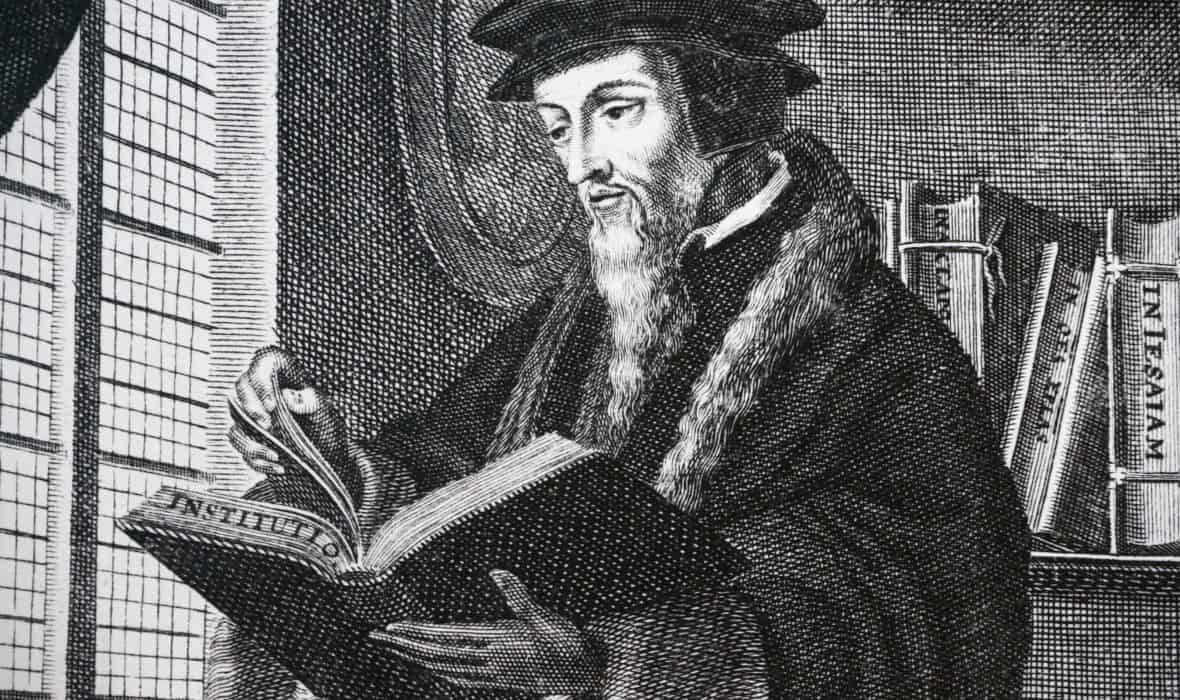Martin Luther wasn’t the only lawyer who became a leader in the Reformation.
In 1534 another lawyer traveled along another rutted road. His life had been shaken in much the same way that Luther’s had been—though not by a storm that drove him to call out to a saint. This lawyer was a Renaissance humanist fleeing the University of Paris.
His name?
John Calvin.
A few months earlier Calvin had helped a friend write a speech. They peppered the address with quotes from Luther and Erasmus. The speech angered the French government and forced Calvin to flee. Soon afterward, Calvin became a Protestant and a Christian.
Calvin fled first to Noyon, France, his home-town. From Noyon, Calvin turned toward Switzerland. There, he wrote the first comprehensive summary of Reformation theology, Institutes of the Christian Religion.
After the Institutes were published, Calvin headed for the Protestant city of Strasbourg, Switzerland. On the way, a military conflict forced him to veer east, taking a detour through Geneva. He intended to stay in Geneva for one night, concealed by the alias “Charles d’Espeville.”
That one night stretched into a lifetime.
A preacher named Farel had already promoted Protestant ideas in Geneva. One of Calvin’s companions told Farel that “Charles d’Espeville” was actually the well-known author of the Institutes. That evening, Farel confronted Calvin at the inn.
“Stay here!” Farel begged, “Geneva needs someone with your gifts.”
“But I need a rest,” Calvin countered.
Farel exploded, “May God curse your rest and the calm you seek for study, if you leave behind such a great need!”
Calvin chose to stay. John Calvin’s central task in Geneva was preaching. For years, he prepared and preached ten different sermons every two weeks. Less than one year after his arrival in Geneva, the city council agreed to Calvin’s vision for the Reformation.
After a series of religious and political quarrels, the Geneva city council forced Calvin to leave the city. Calvin found refuge in Strasbourg, his original destination. There, Calvin cared for French Protestants (“Huguenots”) who, like Calvin, had fled because of persecution. Finally, he had found the life of study that he had anticipated so long ago. Then, in 1539, Geneva needed someone to debate a Roman Catholic thinker. The city council swallowed its pride and asked Calvin to return.
Even after he returned, Calvin’s primary role remained unchanged; he was still foremost and most frequently a preacher. When Calvin returned to the pulpit after his exile, everyone in Geneva expected a sermon filled with severe rebuke—but Calvin did not preach the expected spiteful message. Instead, he began to preach precisely where he had stopped three years earlier, without a trace of harshness or anger.
30 Days through Church History: Day 19

